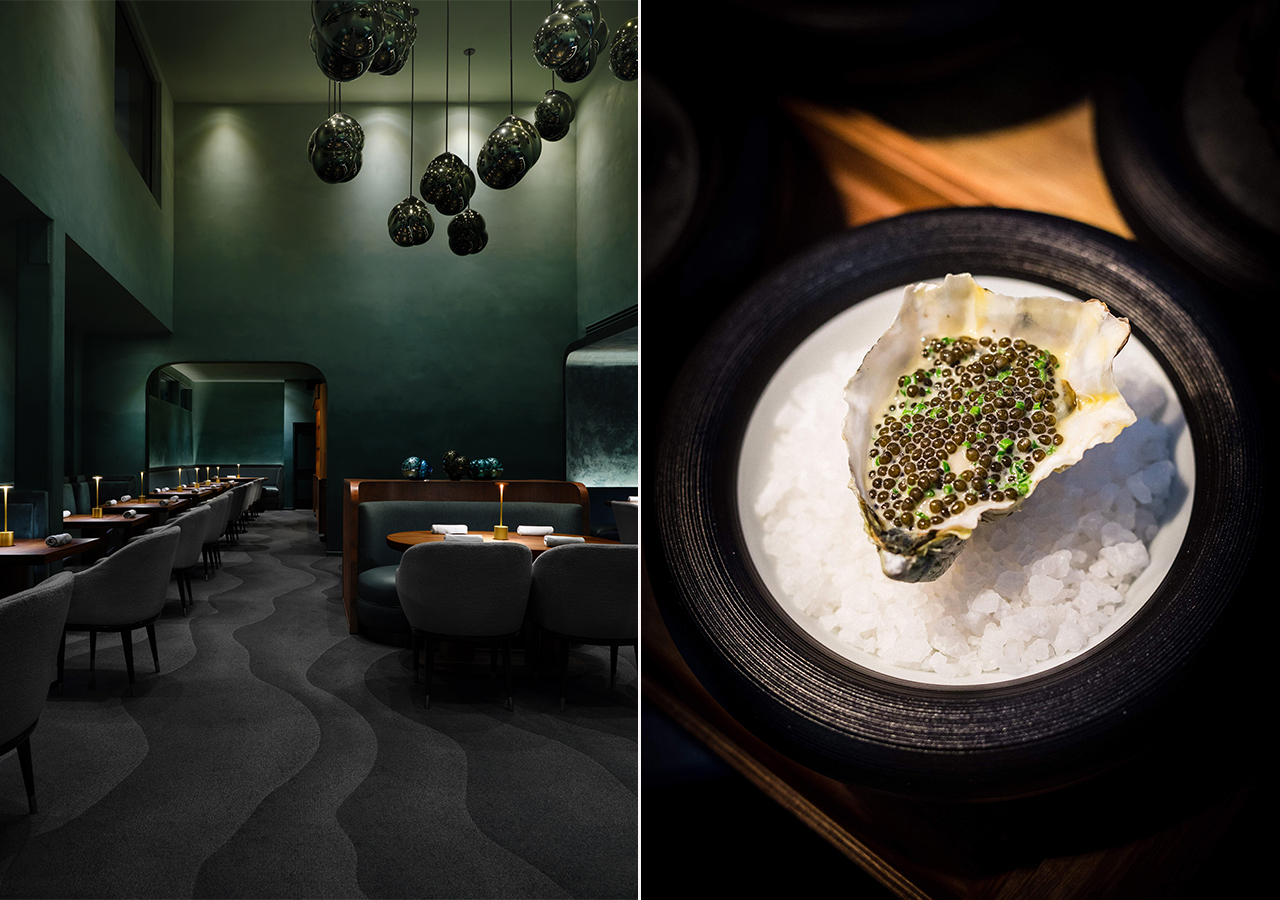Urban Adventures
Relais & Châteaux’s downtown hotels are perfectly placed for exploring the cultural attractions of our most inspiring cities.

Relais & Châteaux’s downtown hotels are perfectly placed for exploring the cultural attractions of our most inspiring cities.
Imperial Atmosphere
The Kitano Hotel, Tokyo, Japan
In central Chiyoda-ku—a Tokyo district known for the Imperial Palace—the Kitano Hotel forges a natural connection between ancestral Japanese traditions and the city’s visionary modernity. Designed by Takashi Imazato, the hotel’s monolithic glass and metal architecture seems to come alive: golden screens that adorn its exterior lend this new member of Relais & Châteaux the appearance of an urban lantern—just like those that light up the city’s Zen gardens and temples. The Imperial Palace Gardens are just a short walk from the hotel, and the pathway that leads there is a magnificent sight during cherry-blossom season. On the rooftop, the Kitano Arms Lounge bar is another place to find those legendary spring blooms. From there, guests can enjoy breathtaking views over timeless yet contemporary Tokyo, including the slender and refined library, designed by the renowned postmodernist architect Kunio Maekawa, which adjoins the Japanese parliament. Chef Takeshi Kamo takes guests on a delicate culinary voyage in the newly open restaurant L’Orangerie Koh-an, on the ground floor of the Kitano Hotel. Here, large bamboos soar high into an atrium bathed in natural light, not unlike those that lead visitors to the entrance of the Nezu Museum of Asian Art, by architect Kengo Kuma. With its spectacular Zen garden, it is one of the most beautiful modern museums in Tokyo.
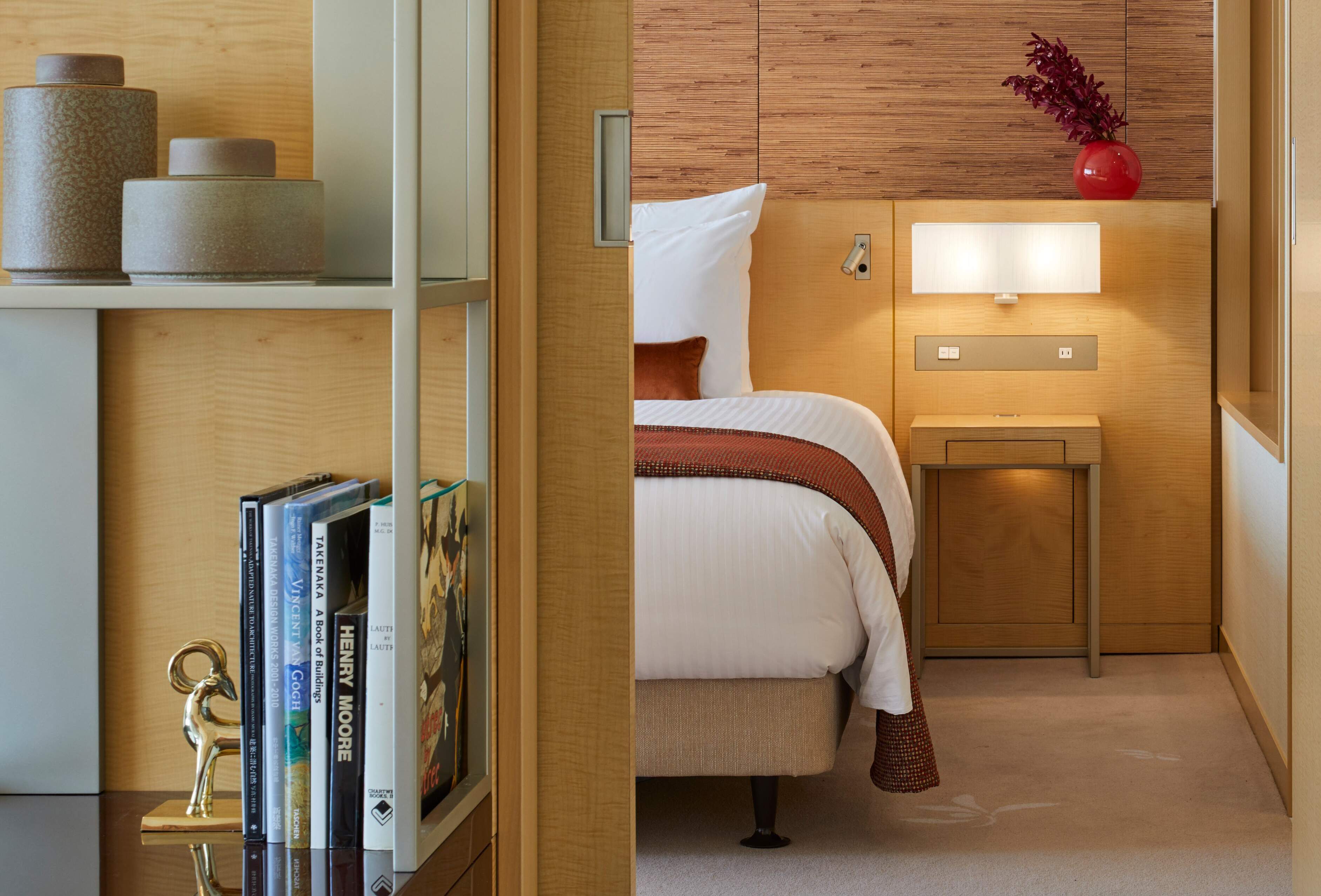
An exploration in fine art
The Amauris Vienna, Vienna, Austria
Located on the famous Ringstrasse that connects the city’s best-known historic buildings, The Amauris Vienna captures all the grandeur of the Austrian capital. As the city palais from the 19th century—then a meeting place for the country’s nobility—it hosts an impressive art collection from the owner’s family which reflects that earlier era: landscapes by Emil Jakob Schindler and Carl Moll, a close friend of Gustav Klimt and co-founder of the Vienna Secession artistic movement, command the greatest respect. Then come luminous and impressive interiors by Olga Wisinger-Florian and the Art Nouveau works of Alexander Rothaug, another heavyweight in the field. To experience more of Vienna’s creativity, head to the Albertina, a large European museum on the other side of ‘the Ring’. There, you’ll find more works by Moll and Klimt alongside Impressionist works by Matisse, Derain, Monet and Kandinsky.
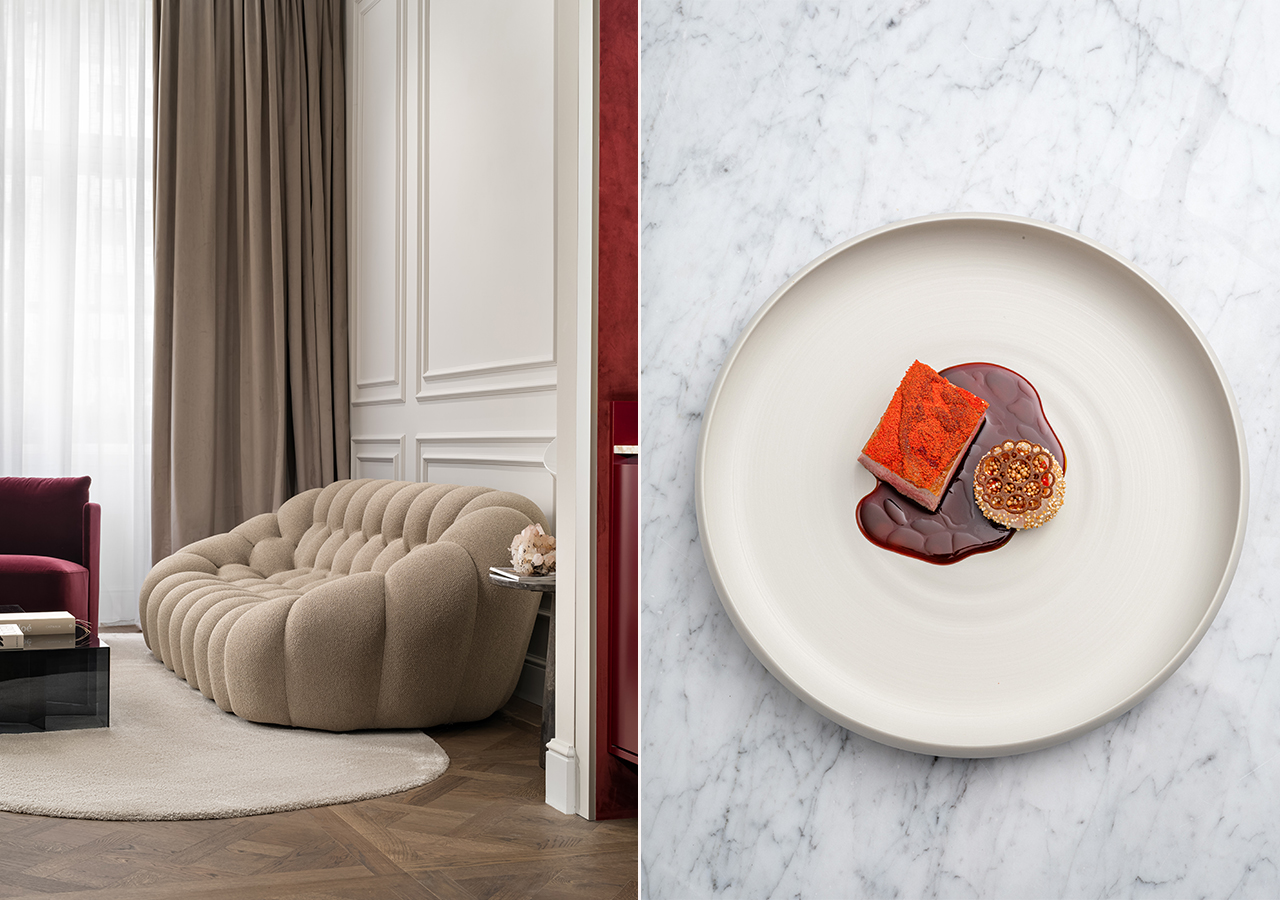
Sculptural impact
Palazzo Ripetta, Rome, Italy
In the historic center of Rome, Palazzo Ripetta, new to Relais & Châteaux, has been welcoming guests since the 17th century, when the building was home to orphaned girls. In front of the elegant hotel, the road leads to the round and monumental Piazza del Popolo, built in neo-classical style. Juxtaposed alongside the elaborate statues all around, the stark geometry of the piazza’s central obelisk seems particularly striking: brought to Rome in 10 B.C. on the orders of Emperor Augustus, this Egyptian relic is the second oldest and one of the largest obelisks in the Italian capital. Just as fascinating, and beautifully incongruous, is an original version of Sphere Within Sphere by contemporary artist Arnaldo Pomodoro, which sits poised at the entrance to the hotel. The allegorical bronze sculpture that it is inspired by rotates on its own axis: originally created in the 1960s for the Vatican Museums, the work is considered a modern Italian masterpiece.
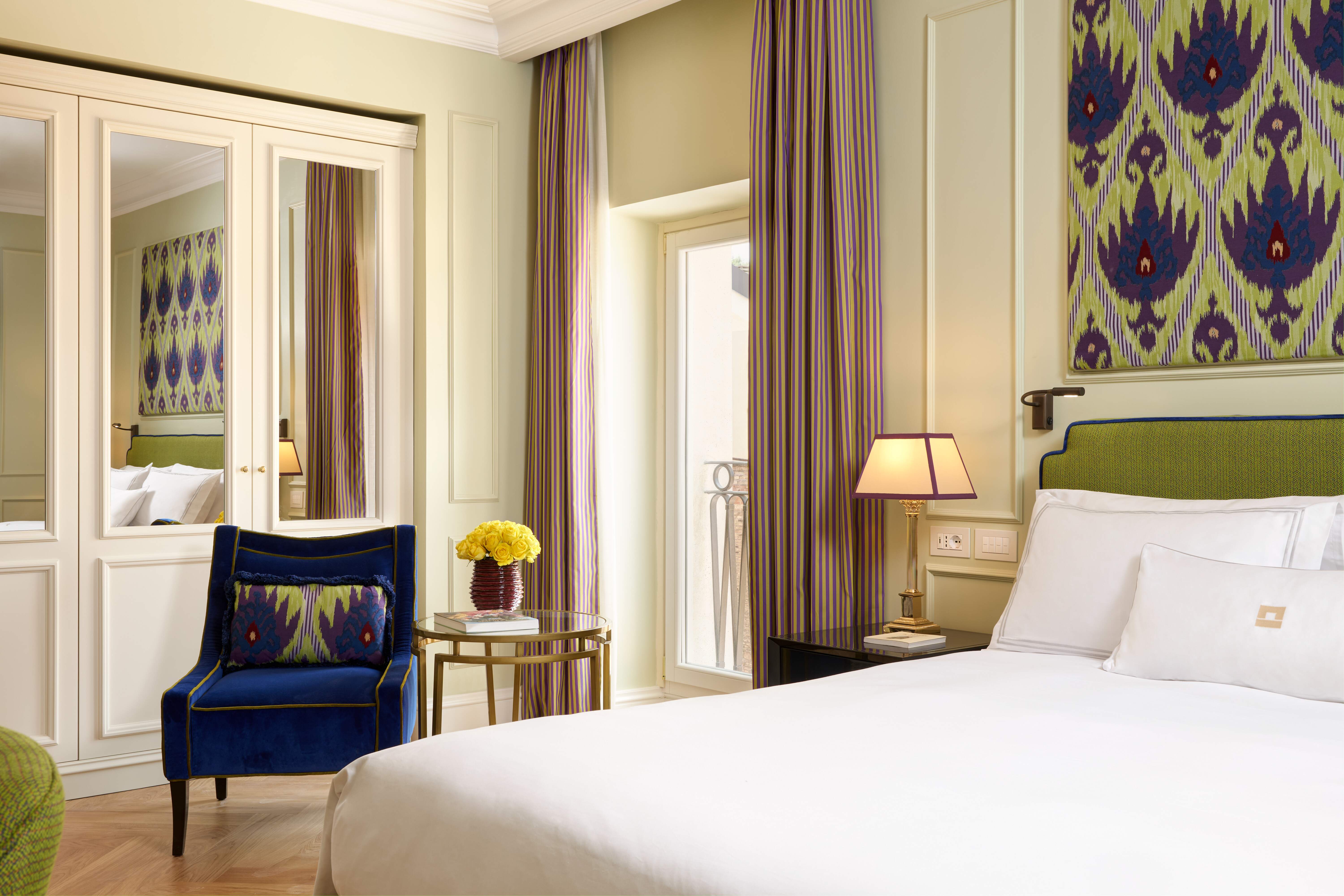
Gardens in the city
The Chelsea Townhouse, London, UK
Near Knightsbridge and Cadogan Gardens in London, the Pont Street Dutch-style red-brick facade of The Chelsea Townhouse stands out among its neighboring gabled Victorian houses. This new Relais & Châteaux location opens onto a unique private garden with a centuries-old plane tree surrounded by mulberry trees, weeping willows, cherry trees and beds of camellias. Access to this Eden is either directly from the Garden Room or via the Garden Suites, each of which bears the name of a famous English botanist, such as Humphry Repton and William Salisbury, who created the gardens at Cadogan Place in 1807. A short walk away is Chelsea Physic Garden—founded in 1673 and the oldest place in England for the study of medicinal plants—and the Royal Hospital grounds, which were planted in the 17th century. This is where the unmissable Chelsea Flower Show is held every May: the cream of society meets to uphold the unrivaled tradition of English botanical artistry.

Down memory lane
Valverde Lisboa Hotel & Garden, Lisbon, Portugal
Standing proud on Lisbon’s Avenida da Liberdade—the main avenue built between 1879 and 1882 that drew inspiration from the Champs-Élysées in Paris—the refined style of the Valverde Lisboa Hotel recalls the townhouses of other great European capitals, with modernist furniture and works of art on display. The bar comes alive with the sounds of fado, a pillar of the capital’s culture: gentle yet powerful, these melancholic songs with soft-plucked guitar accompaniment transport listeners to the lively streets of Alfama, one of the districts where the music originated. You’ll quickly start to recognize some of the more popular tunes—they were adopted by the bourgeoisie before they became classics known the world over, evoking saudade, a feeling of unfulfilled love, jealousy or exile. In Alfama, visit the Fado Museum for its collections of musical instruments and old paintings, and exhibitions that immerse visitors in the timeless sounds of guitars and voices: a world included on UNESCO’s Lists of Intangible Cultural Heritage.
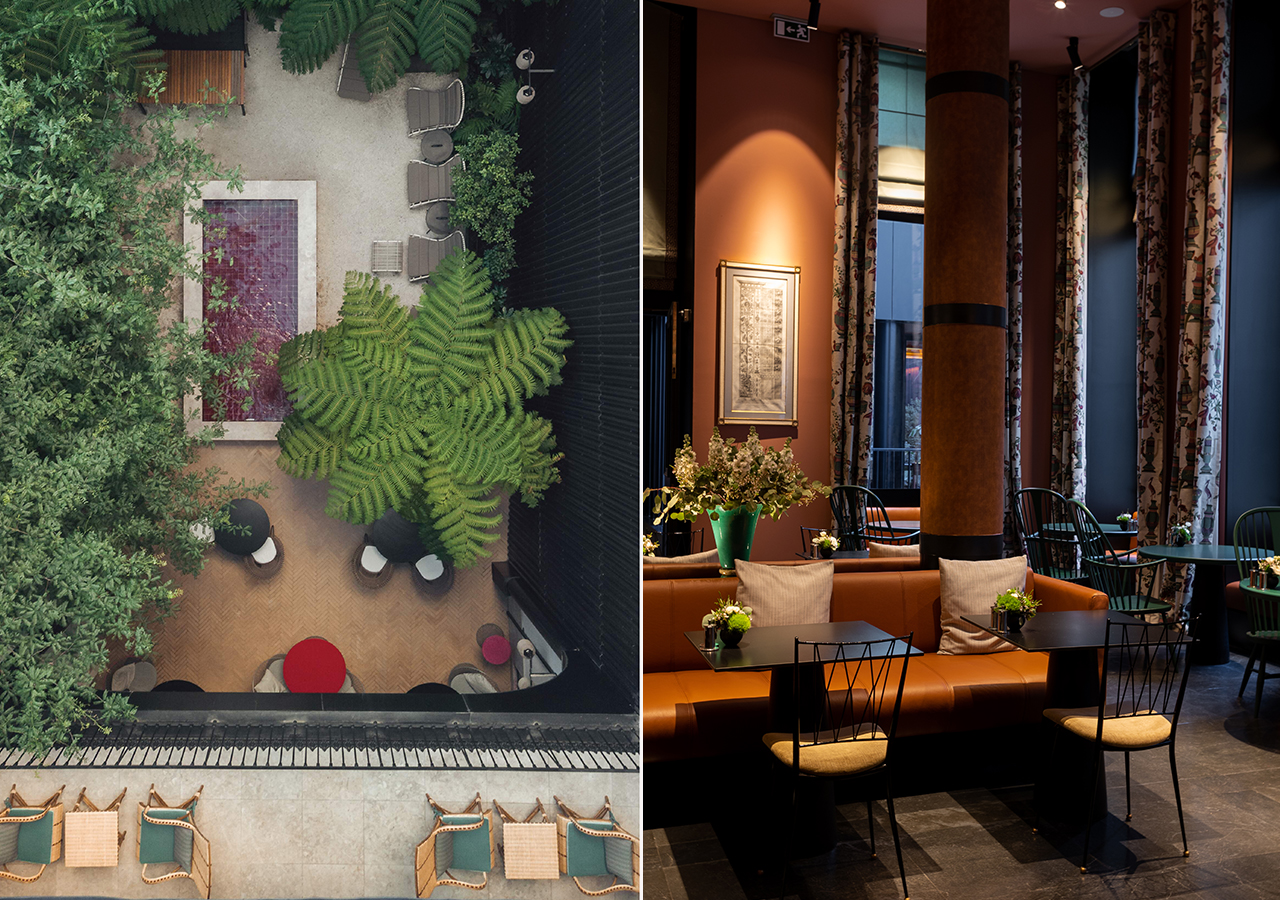
Spotlight on seafood
Providence, Los Angeles, USA
Just a stone’s throw from Hollywood, Providence restaurant, a new member of Relais & Châteaux, is no less theatrical. The design of the restaurant gracefully hints at the convergence of the ocean and sky, apparent from the moment one steps inside. Illuminated niches highlight a sculptural installation by French artist Jeremy Maxwell Wintrebert: 26 mouth-blown iridescent spheres seem to levitate near the ceiling. Michael Cimarusti, co-owner and chef of the two-Michelin-starred restaurant, trains his spotlight on fish and shellfish, creating dishes of extraordinary poise. He has received a string of awards for his flawless sourcing and ‘dock-to-plate’ policy (which earned the venue a Michelin green star). The chef regularly meets with prospective producers, like a casting director scouting new talent. The dishes he serves are as natural as they come, merely enhanced with a few precious ingredients: his sashimi is ready for its close-up alongside asparagus and lettuce, while lobster makes its debut enhanced with a dash of saffron and Alaskan King Salmon is cast in its starring role alongside strips of daikon and aromatic black truffle.
